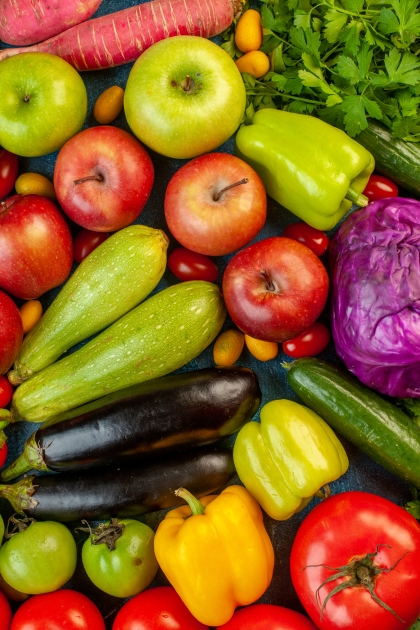
One More Reason to Eat Vegetables
By Mary Lou Block, Registered Dietician Nutritionist
No one could accuse me of telling you to become vegetarian since my family raises beef. That said, “Eat your vegetables!”
If this imperative dredges up images of canned peas flying on imaginary airplanes into your childhood mouth, reconsider. I only recommend canned peas to my 2-year-old granddaughter. You are exempt from them, but not from vegetables--fresh, frozen, steamed, sautéed.
Live Longer
Why would I encourage you to eat vegetables? Well, for many reasons—vitamins, mineral, antioxidants, insoluble prebiotic fiber, to mention a few. One mineral, potassium, stands out as a key to many body functions, and for this alone, vegetables are one of my top recommendations for your health.
If you want to live longer eat more potassium rich foods, according to a 2015 New England Journal of Medicine study. This study not only confirmed that a low potassium intake was associated with a higher mortality rate, but also that mortality rates decreased with increasing potassium intakes.
Why would one mineral provide this type of benefit?
Potassium influences weight and blood sugar. How? For starters, diets rich in potassium reduce cravings and suppress appetite. Potassium also helps regulate blood sugar and reduce insulin resistance, therefore reducing your risk of Type 2 Diabetes. Potassium is necessary to store blood sugar as glycogen, giving you readily available energy, so you don’t have to rely on a constant stream of dietary carbohydrate. And by the way, a high carbohydrate diet depletes serum potassium as it spikes insulin, both contributing to poor blood sugar control. Of note here is the unfortunate side-effect of long-term diuretic treatment for blood pressure, low serum potassium which leads to impaired glucose tolerance.
Blood pressure also benefits from a high potassium diet. That is, a high potassium diet = low blood pressure, and a low potassium diet = high blood pressure. But be careful if you arbitrarily restrict sodium. Potassium and sodium are in a balance in your body and when you unnecessarily restrict dietary sodium, your kidneys excrete potassium to preserve sodium. In other words, unduly restricting sodium (unless you have a salt-sensitive blood pressure problem) causes you to lose potassium and is counter-productive to blood pressure regulation.
So, how are you doing?
4.7 gm/day is the recommended adequate amount of dietary potassium. But according to the NHANES 2009-2010 study, only 50% of Americans consume even half this amount. So how do you increase it?
Honestly, a major source of potassium is meat, milk, and homemade bone broth, but you just can’t get away with skipping vegetables. On average, they provide 200-300 mg of potassium/serving. If you consume the recommended vegetable amount of 6-8 servings/day, you will be well on your way to meeting your potassium needs.
Here’s your menu suggestion: 2 cups of vegetables/meal, including breakfast.
Veggie breakfast ideas:
Kale shake, sautéed veggies and scrambled eggs, fresh veggies (eaten on the way to work.)
Other high Potassium choices:
Baked potato (900 mg), beet greens (650 mg), avocado (550 mg)






